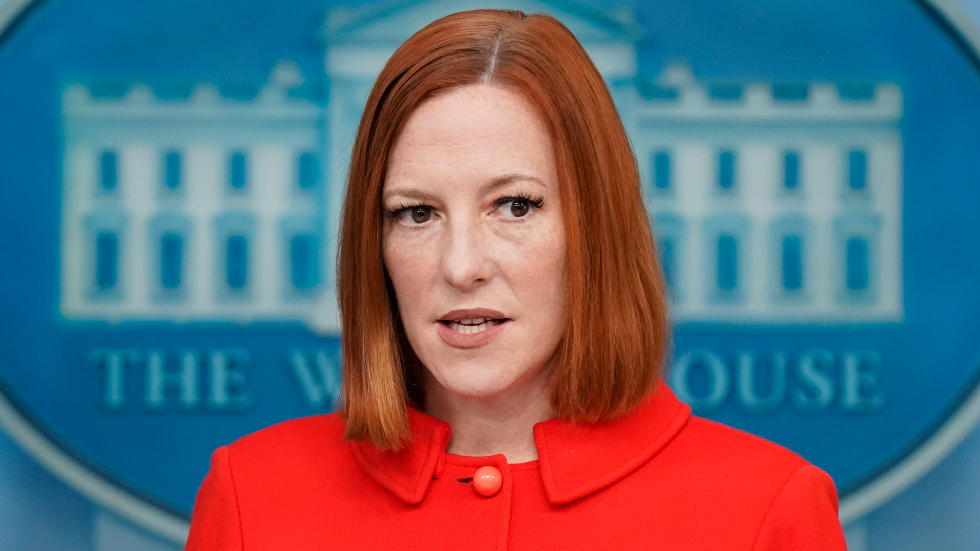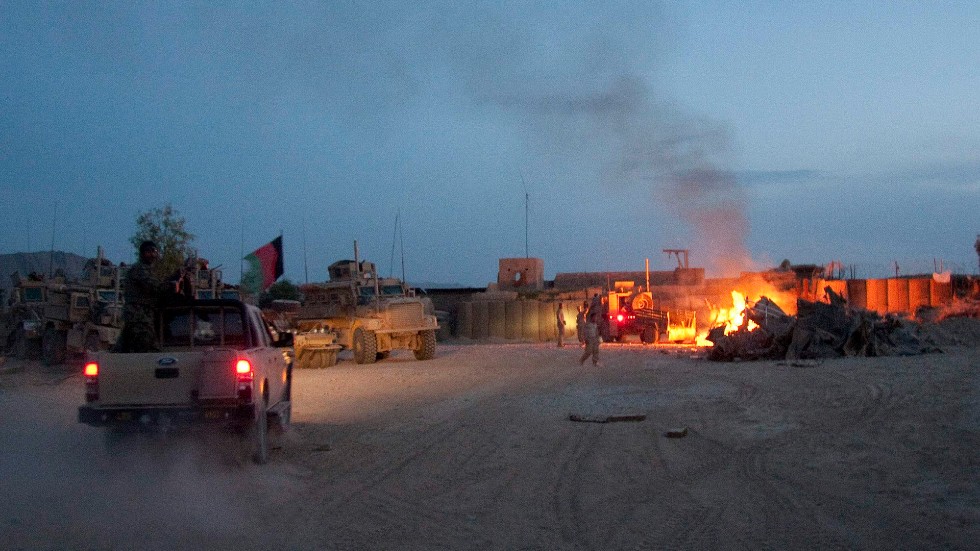Overnight Energy & Environment — White House says no to Russia oil ban
Welcome to Thursday’s Overnight Energy & Environment, your source for the latest news focused on energy, the environment and beyond. Subscribe here: digital-staging.thehill.com/newsletter-signup.
Today we’re looking at the White House’s dismissal of a growing push to ban Russian oil imports and examining a House bill aiming to extend health benefits to veterans who faced toxic exposure.
For The Hill, we’re Rachel Frazin and Zack Budryk. Write to us with tips: rfrazin@digital-staging.thehill.com and zbudryk@digital-staging.thehill.com. Follow us on Twitter: @RachelFrazin and @BudrykZack.
Let’s jump in.
Biden officials shoot down oil import limits

The White House on Thursday knocked down talk of banning Russian oil imports, warning doing so could further spike the already high price of gas for Americans, after Speaker Nancy Pelosi (D-Calif.) threw her support behind the idea.
“Our objective and the president’s objective has been to maximize impact on President Putin and Russia while minimizing impact to us and our allies and partners,” press secretary Jen Psaki said at a briefing with reporters.
“We don’t have a strategic interest in reducing the global supply of energy and that would raise prices at the gas pump for the American people around the world because it would reduce the supply available,” she continued. “And it’s as simple as less supply raises prices, and that is certainly a big factor for the president at this moment. It also has the potential to pad the pockets of President Putin, which is exactly what we are not trying to do.”
Psaki said the Biden administration has been taking steps to try and “degrade Russia’s status as an energy supplier over time.”
Deputy press secretary Karine Jean-Pierre made similar remarks on Wednesday, saying, “We don’t have a strategic interest in reducing the global supply of energy.”
Read more about Psaki’s comments from The Hill’s Brett Samuels.
PUSHBACK ON CAPITOL HILL
“They’re so wrong,” West Virginia Democrat Sen. Joe Manchin told reporters, referring to Jean-Pierre’s comments about the global supply of energy.
Manchin, alongside Sen. Lisa Murkowski (R-Alaska) and others, introduced yet another piece of legislation aiming to block Russian oil imports on Thursday.
“The United States has the ability to backfill and help all of our allies around the world as they [Russia] use this energy as a weapon,” Manchin said at a press conference. “We have to make sure that we’re doing ours [energy production]. We do it cleaner than anybody else. We do it in a better fashion anybody else. And we have the ability with a reserve to do much more during this crisis.”
House Speaker Nancy Pelosi (D-Calif.) also came out in support of a ban earlier Thursday: “I’m all for that — ban it,” Pelosi said. “Ban the oil coming from Russia.”
Read more about Pelosi’s comments here and the Murkowski-Manchin push here.
GET ON THE LIST
Stay ahead of the news cycle with The Hill’s new Evening Report, featuring the day’s top stories and a look ahead to tomorrow.
House passes burn pits bill

The House on Thursday passed legislation that would expand access to health care for veterans exposed to toxins, such as chemicals emanating from burn pits, during their military service.
Lawmakers passed the bill largely along party lines, 256-174. Thirty-four Republicans joined Democrats in support.
Passage of the bill came two days after President Biden announced during his State of the Union address that the Department of Veterans Affairs will add nine respiratory cancers to its list of service-connected disabilities to expand benefits eligibility for affected veterans.
The bill passed in the House would expand VA health care eligibility for veterans exposed to toxic burn pits by establishing a presumption of service connection for about two dozen types of respiratory illnesses — like chronic bronchitis and asthma — and cancers.
It’s estimated that about 3.5 million U.S. service members have been exposed to burn pits, according to the Iraq and Afghanistan Veterans of America, a nonprofit veterans organization. A survey from the nonprofit found that 86 percent of its members reported exposure to burn pits or other toxics, with 89 percent reporting symptoms that might have been caused by that exposure.
“When our country goes to war, we don’t nickel and dime the Department of Defense. And we shouldn’t try to pinch pennies when it comes to covering the care for toxic-exposed veterans,” said House Veterans’ Affairs Committee Chairman Mark Takano (D-Calif.).
The other side: Republicans argued the legislation could exacerbate VA backlogs and would add too much to the deficit, given its nearly $300 billion price tag over a decade.
“We are not doing right by our veterans by being fiscally irresponsible in their name. And I say that as a veteran myself,” said Rep. Mariannette Miller-Meeks (R-Iowa), a member of the House Veterans’ Affairs Committee who previously served in the Army.
Read more on the bill’s passage and about one specific piece of it from The Hill’s Sharon Udasin.
WHAT WE’RE READING
- Ukraine Is in an Environmental Crisis Too (Wired)
- Only 6% of G20 pandemic recovery spending ‘green’, analysis finds (The Guardian)
- Why climate solutions will fail without the help of social scientists (Vox)
ICYMI
- Florida House passes bill to establish climate change resiliency office
- US nuclear industry presses White House on Russian uranium imports: report
And finally, something offbeat and off-beat: Enjoy these State of the Union memes.
That’s it for today, thanks for reading. Check out The Hill’s energy & environment page for the latest news and coverage. We’ll see you tomorrow.
We want to hear from you! Take our newsletter survey to provide feedback on our offerings.
Copyright 2024 Nexstar Media Inc. All rights reserved. This material may not be published, broadcast, rewritten, or redistributed..







